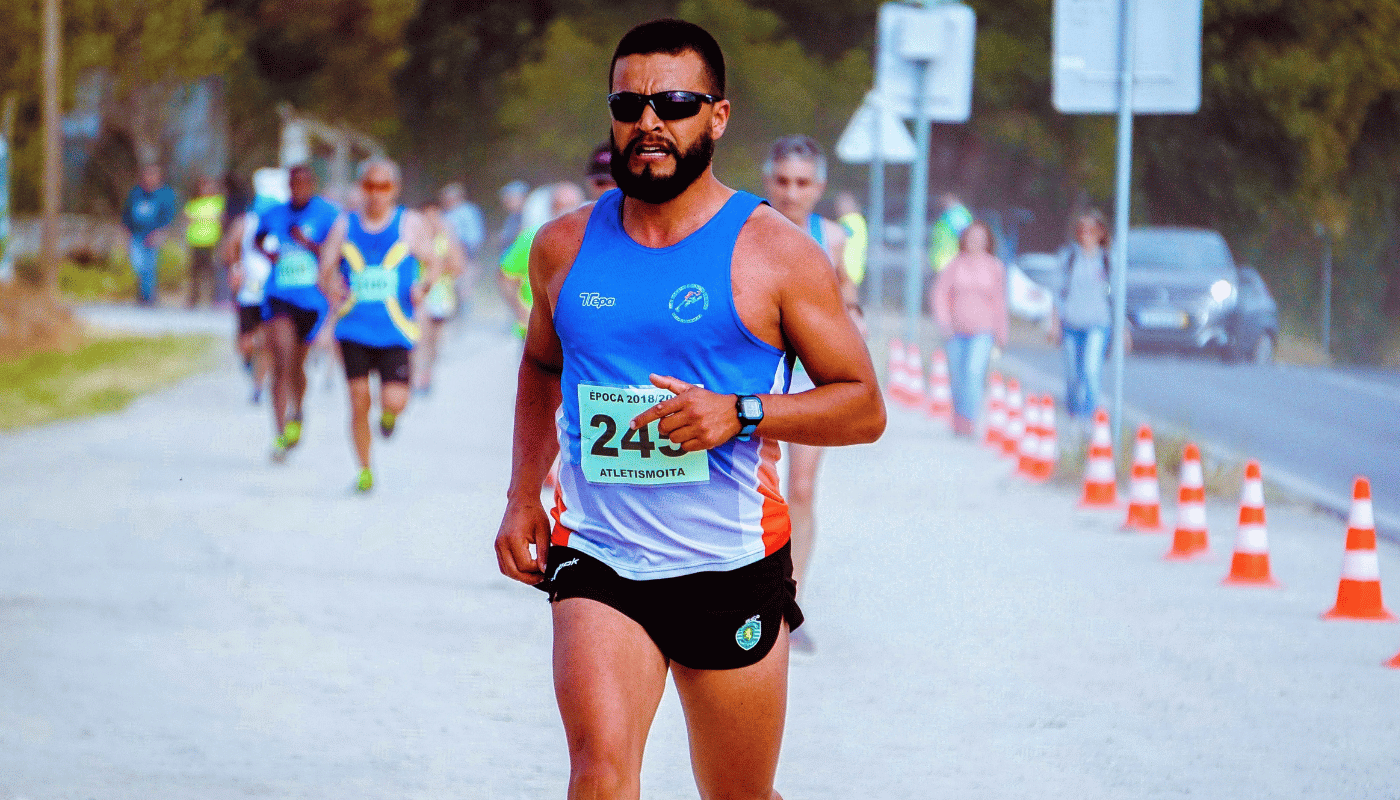Running a half marathon is a significant physical challenge, but many people wonder, can I run a half marathon without training? It’s not uncommon for beginners or those with limited running experience to ask if it’s possible to participate in a half marathon without following a structured training plan. While the idea might seem appealing, especially for those seeking to prove their endurance or achieve a personal goal, it’s essential to understand the risks and challenges involved.
To put it simply, a half marathon measures 13.1 miles or 21.1 kilometers and serves as an excellent gauge of one’s endurance. Even experienced athletes are likely to undergo some form of training prior to the half marathon so that their bodies can adapt to the long distance. Training is needed, or else one might experience fatigue, injures and in extreme cases, greater health concerns. Therefore, those with insufficient prior training should refrain from attempting a half-marathon.
In this write-up, we shall look into potential consequences of insufficient training, as well as discuss the effects and benefits of training, pro tips, and substitute ideas for newcomers. By the end of this piece, you will have a better understanding of whether it is indeed possible to run a half marathon without appropriate training. So, if you decide to pursue a half marathon, you must understand the drawbacks of missing out on training, and the impact it has on your overall health and the experience itself.
Understanding The Half Marathon
One of the most participated endurance runs around the world is the half marathon, which has attracted different types of runners. The distance of half marathon is 21.0975 kilometers or 13.1 miles and is considered half the distance of a full marathon. In this event, the runners are challenged to push their physical and mental barriers. It is important to note the characteristics of a half marathon prior to attempting one, primarily if one is not physically trained.
Some contestants may find themselves capable of running a half marathon, however, the physical impact it has on the body is savage. The distance of 13.1 miles demands a decent cardiovasculor base, leg muscles, and most importantly mental strength. A half marathon is completely different from a 5 or 10 K event as those are for sprinters, but the half marathon is for endurance runners. Nonetheless, even having the possibility of running the distance entails a lot of planning to ensure no exhaustion occurs.
Key Aspects Of Running A Half Marathon:
- Distance: The total distance of 21.1 kilometers (13.1 miles) is far longer than most recreational runners are accustomed to.
- Physical Endurance: The race demands cardiovascular endurance, muscular strength, and overall stamina.
- Mental Focus: Mental resilience plays a crucial role in pushing through the later stages of the race when fatigue sets in.
- Pacing: Runners must maintain a steady pace to avoid burnout, particularly if they haven’t trained.
- Hydration: Staying hydrated is essential to prevent dehydration, especially during longer distances.
- Race Day Conditions: Weather, terrain, and course elevation all contribute to the difficulty of the race.
After understanding the fundamentals of a half marathon, it becomes clear why training is vital. Without the proper preparation, the body is not equipped to handle the stresses of such a long distance, and the risk of injury is elevated. “Can I run a half marathon without training?” While the answer might seem tempting to some, it’s important to recognize the challenges that come with attempting this distance without the necessary conditioning. Runners should consider the physical and mental demands of the race to ensure a safe and successful experience.
Running a half marathon requires careful planning and adequate training. Skipping the training process not only reduces the chance of completing the race but also increases the risk of injuries, making it a dangerous choice for most people. Training ensures that the body is properly conditioned, and it helps to build the stamina required for such an endurance test.
The Importance Of Training
Your half marathon training includes multiple principles, the first and foremost being getting yourself trained for a marathon. You need to be on a sound level of physical and mental conditioning so that by the time the race comes, you have prepared yourself wholly. Be it the first time you’d be running this race or if you are an experienced runner, it is important to set time aside to train adequately so that the risk of injury is avoided.
With no training regime, one can go from excited to overwhelmed very quickly, causing fatigue and possible injuries. A half marathon should be a jogger’s ultimate goal, and for a lot of people it is, especially if they possess the requisite endurance. Training for such events should be gradual and once built will enable the body to withstand long distances. Tissues around the bones tend to get damaged if proper strength conditioning is not done, hence joint and muscle strengthening is essential. Cognitive skills get a lot of boost from training as well, as chances of being mentally tough are greatly increased. Pushing the boundaries of one’s skill provides confidence to tackle tough situations that come along with long distance running, such as the latter parts of the race.
Benefits Of Training For A Half Marathon:
In regards to competitive performance, there are different reasons why one has to train for a half marathon. For one, there is improved cardiovascular endurance. A heart and lung system is pumped by the muscles during running which improves oxygen supply. Besides, running builds strength and endurance of the legs, which is very important during the latter stages of the race especially when one begins to feel tired.
As a half marathoner, you have to train to prepare yourself mentally too. Specific training programs promote better pacing and enable a runner to cope with fatigue and discomfort. Additionally, it helps runners to prepare mentally for race-day by learning how to fuel his body before, during, and after the race, how to drink, and how to pace himself or herself throughout the race.
It’s clear that proper training is crucial for successfully completing a half marathon. “Can I run a half marathon without training?” While it is technically possible, attempting it without preparation is risky and could lead to serious health consequences. Training provides a gradual buildup to the distance, which ensures that your body and mind are prepared to handle the race. For anyone looking to improve their chances of finishing strong and without injury, a consistent training regimen is a must.
Potential Risks Of Running Without Training
Attempting to run a half marathon without proper training is a truly unnerving and risky undertaking. For instance, some people may think that they can muscle through the 13.1-mile distance without any preparation, yet the physical hazards can be quite severe. Indeed, covering such distances puts excessive pressure on one’s body; and without adequate preparation, these risks actually increase.
One of the main risk populations is injury. Without training the muscles, joints and ligaments are not ready to withstand the repeated strain over a long period of running. For instance, untrained runners are prone to tendonitis, shin splints, and strained muscles which are all categorised as overuse injuries. Besides, cardiovascular systems can also be unaccustomed to the effort needed which can further increase the already high chances of cardiac problems.
| Risk | Description |
| Muscle Strains | Lack of strength and flexibility can lead to pulls and tears. |
| Joint Injuries | Inadequate conditioning may cause knee and ankle issues. |
| Dehydration | Running without proper hydration strategy increases the risk of dehydration. |
| Heat Exhaustion | Overexertion without acclimatization can lead to overheating. |
| Cardiovascular Strain | The heart is under more pressure without proper training, which can be dangerous. |
After reviewing the risks involved, it is clear that attempting a half marathon without training can result in serious consequences. Even experienced runners need time to properly condition their bodies for such an intense race, as a lack of preparation can lead to physical breakdowns that compromise performance and safety.
By training in advance, the body builds the endurance, strength, and flexibility needed to handle the stresses of a long race. It also helps develop the mental fortitude required to push through tough moments during the event. Skipping this step leaves the body vulnerable to injuries and other complications that could prevent completion of the race or cause long-term harm.
Expert Opinions And Recommendations
There are many factors to consider such as the opinion and advice from authorities in regards to taking on a half marathon without preparation. In fact, they emphasize that trying to race without having done any preparation such as practice or training is not advisable – and I would have to agree with them. Although there may be some potential satisfaction, the amount of risk this action impose makes it far from worth it.
Professionals clearly state time and time again that the requirements to run a half marathon goes far beyond what is tangible such as proper strength. There is also need for adequate amount of mental effort. In a way, it freshens the abilities of the mind. Luckily, most people can develop the required strength with the help of a specific and well laid out program. It is important to point out that this approach will guarantee them safety as well as better results. A well planned procedure attains the increase of mile and aerobic technique speed together with proper rest in order to avoid injuries caused by excessive exercise.
Professional Advice On Half Marathon Training
Many experts suggest starting a training plan at least 12-16 weeks before the race, depending on your current fitness level. A structured plan allows runners to build endurance gradually, which reduces the risk of injury. Additionally, training plans often include a mix of running, cross-training, and rest days to give the body time to recover and adapt. These plans also emphasize the importance of pacing, fueling strategies, and hydration, which are essential for race day.
“Can I run a half marathon without training?” While it is technically possible for some experienced runners, those who are new to running or have not been consistent with their fitness routines should not attempt it. According to experts, the likelihood of injury, fatigue, or not finishing the race increases significantly without proper training. Training prepares the body not just for the distance, but for the mental and physical demands that come with running a half marathon. Even seasoned runners know the value of a well-structured plan leading up to the race.
In conclusion, expert recommendations consistently highlight the importance of training. Skipping this crucial step may lead to disappointing results, injury, or even health complications. Anyone planning to run a half marathon should seriously consider following a proper training program to ensure they are prepared both physically and mentally for the challenge.
Alternative Approaches For Beginners
For novices wishing to take part in a half marathon but have not put in the work, there are some strategies that make participation in the race less daunting. These techniques reduce the likelihood of injury while attempting to cover the full distance without training. Even though there are certain strategies that can be followed to alleviate some problems, training is still the best option.
One of the most widely used alternative strategies is the Jeffing technique: running for a period before walking. This strategy is relatively new and it is recommended by seasoned runners for beginners and participants that do not run much. Runners that tend to overuse themselves are able to manage their energy by setting aside portions for walking. This strategy helps to limit injuries by letting the body heal during the walking sections of the race.
Benefits Of The Jeffing Method:
- Reduced Fatigue: Alternating between running and walking helps prevent early exhaustion, especially over long distances.
- Lower Injury Risk: Walking intervals allow muscles and joints to recover, reducing the strain from continuous running.
- Increased Accessibility: The method makes long-distance running more accessible for people who might struggle to run the entire distance without training.
- Improved Pacing: By alternating, runners can maintain a steadier pace and avoid burning out too quickly.
- Psychological Boost: Knowing that walking breaks are coming up can help mentally prepare runners for the challenge ahead.
For anyone attempting a half marathon without sufficient training, “can I run a half marathon without training” is a question worth considering. The Jeffing method provides a way to run the race without overwhelming the body, ensuring that participants have a better chance of finishing. This approach emphasizes a balanced effort, which is essential when running long distances without being fully conditioned.
In addition to Jeffing, beginners can also focus on building endurance through shorter races or fun runs before attempting a half marathon. Participating in a few 5K or 10K events can help improve stamina and build confidence for the larger race. These shorter distances allow runners to gain experience and gradually increase their fitness levels. Over time, this builds a solid foundation, making the half marathon a more realistic and achievable goal. By taking these alternative approaches, even those with limited training can attempt the race while minimizing risks.
Is It Worth Attempting A Half Marathon Without Training?
Running a half marathon without training can be tempting, but it’s crucial to consider the physical and mental demands of the race. “Can I run a half marathon without training?” is a common question, and while some might push through, the risk of injury or burnout is high. Without preparation, your body may not be equipped to handle the stresses of the race, and the experience could be detrimental to your health.
It is more sensible to stick to a training regimen that incrementally increases your endurance and strength. It is always better to make an attempt at getting ready for a race than going in completely unprepared. Incorporating walking breaks into shorter runs and cross-training makes a huge difference in your body’s adaptability to the 13.1 miles.
In short, some people may wish to attempt a half marathon with no prior training, but most people will not recommend it. Accept a more realistic training program and take it easy on your body. Do not fret, as your well-being and health will be prioritized. If you do put in the effort to train, you will have no issues when it comes time to the actual race. In fact, not only will you be able to complete the race, but also in a safe and healthy manner.






